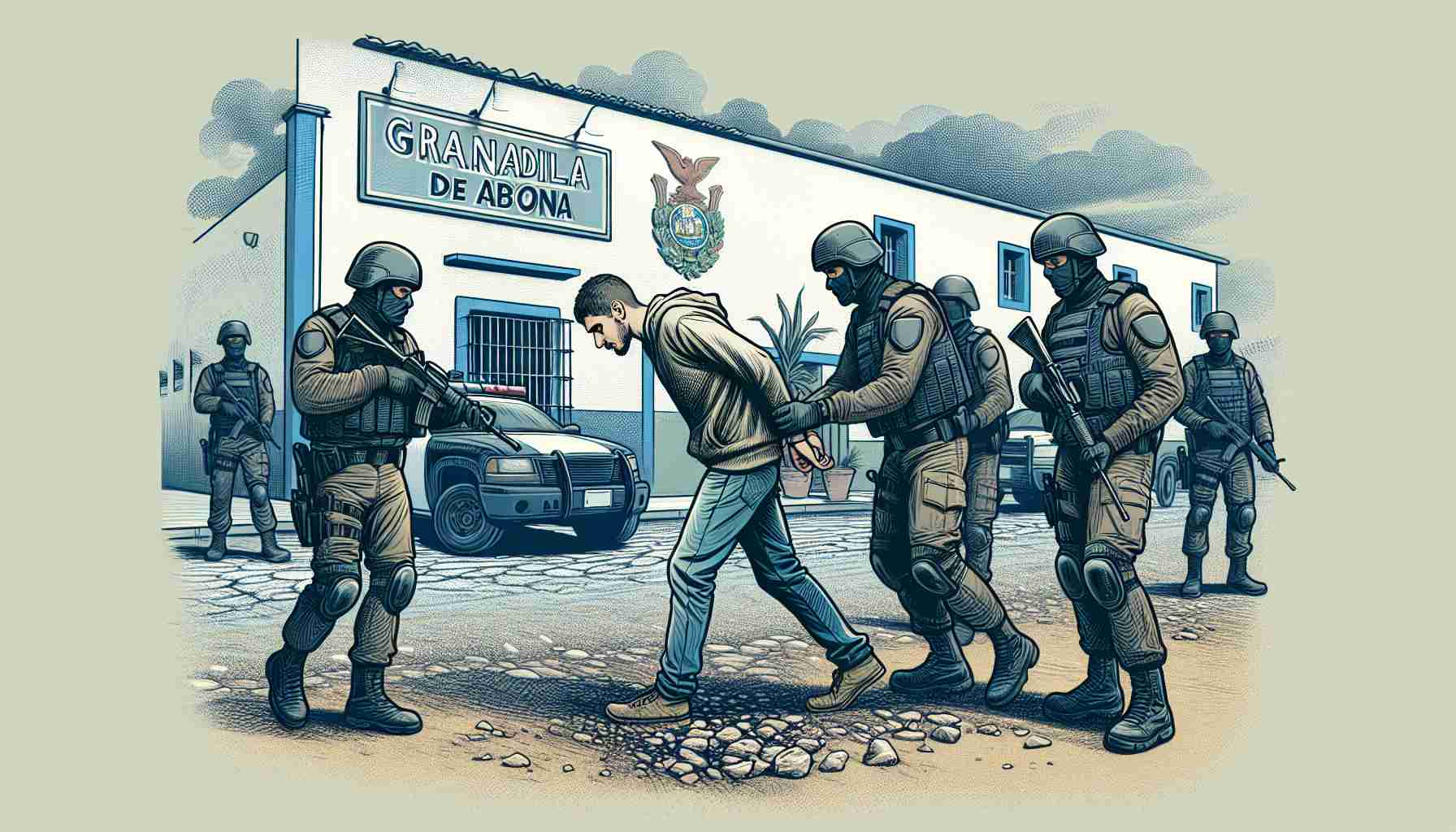
Disturbance in Granadilla de Abona: Man Arrested for Unlawful Actions
A man in his forties was recently apprehended in Granadilla de Abona, Tenerife, following a troubling incident involving his partner and their young child. The individual, a citizen of Italian descent, broke into the home of his partner, leading to a violent altercation that resulted in severe injuries.
The victim, identified as a 33-year-old Colombian woman, sustained wounds to her chest and head after being attacked with a knife. The severity of her injuries necessitated immediate medical attention, prompting her admission to the hospital.
Subsequently, the aggressor attempted to harm himself with the same weapon, inflicting cuts to his neck and necessitating urgent medical intervention. The swift response of law enforcement led to the arrest of the perpetrator around 2:30 PM on a fateful Sunday afternoon.
This distressing incident serves as a stark reminder of the importance of addressing mental health issues and domestic conflicts promptly and effectively to prevent such tragic outcomes.
Update: Man Arrested in Granadilla de Abona Faces Additional Charges
Following the initial arrest of the individual involved in the violent incident in Granadilla de Abona, new details have emerged that shed light on additional unlawful actions committed by the perpetrator. Investigations have revealed that the man, whose identity has not been disclosed due to legal proceedings, has a history of past criminal activities in other regions.
Authorities have linked the suspect to a series of previous offenses, including theft, vandalism, and assault. These revelations have raised questions about how such individuals can potentially slip through the cracks of the justice system and evade detection until more serious incidents occur.
Key Questions:
1. What measures are being taken to enhance coordination between law enforcement agencies to track individuals with a history of criminal behavior?
2. Are there gaps in the legal framework that could allow repeat offenders to avoid detection and continue perpetrating crimes?
Challenges and Controversies:
The case in Granadilla de Abona highlights the challenge of effectively monitoring individuals with a history of criminal behavior, especially when they move from one location to another. Identifying and addressing the root causes of such individuals’ actions, such as underlying mental health issues or social factors, presents a complex challenge for law enforcement and social services.
Advantages:
1. Increased public awareness of the importance of early intervention in cases of domestic conflicts and mental health issues.
2. Potential for legislative reforms to strengthen measures aimed at preventing repeat offenses by individuals with a history of criminal behavior.
Disadvantages:
1. Stigmatization of individuals with mental health challenges or past criminal records without adequate support and rehabilitation services.
2. Resource constraints that may limit the ability of law enforcement agencies to effectively monitor and intervene in cases involving individuals with a history of criminal behavior.
For further information on mental health support and crime prevention measures, visit World Health Organization and United Nations Office on Drugs and Crime.